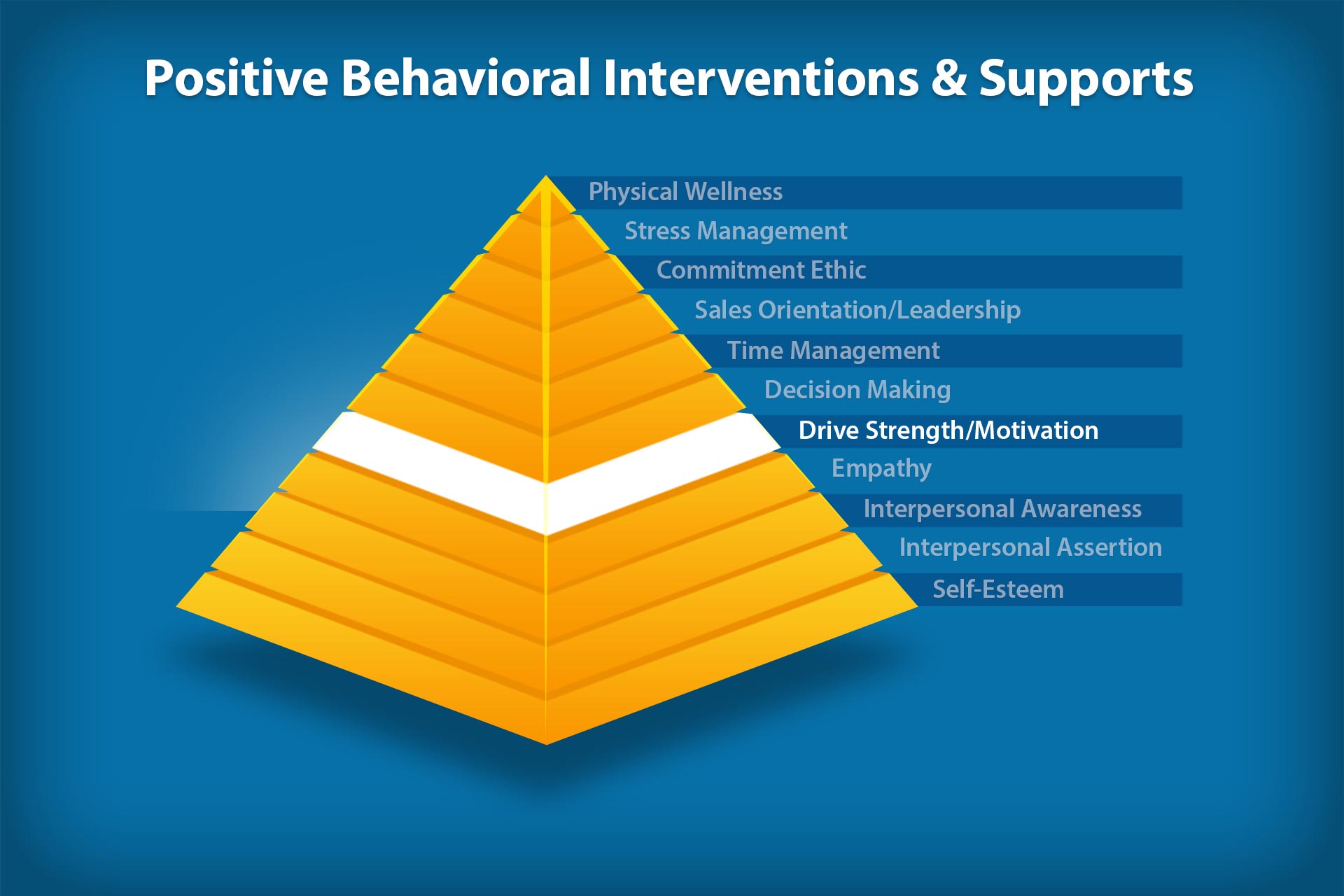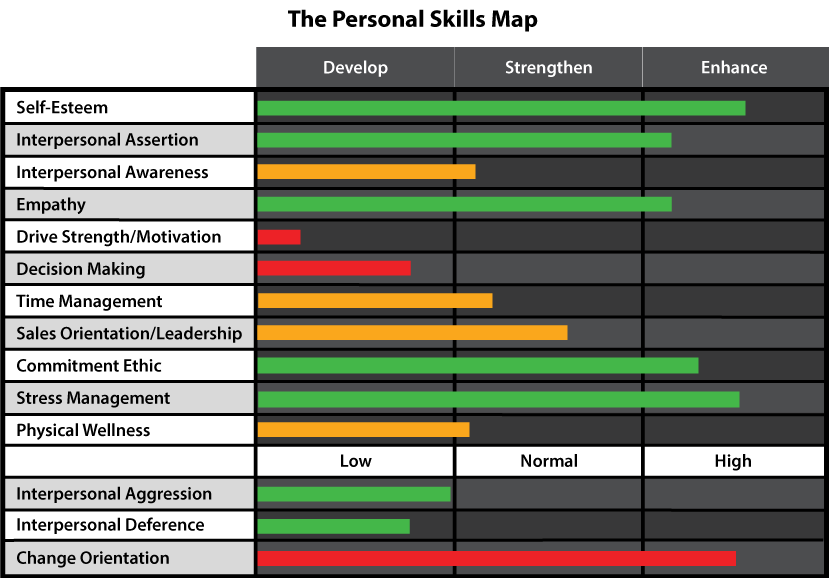
Ever heard of “Drive Strength”?
Drive strength, another term for motivation, is the skill of learning, understanding, and using your desire to reach school, work, and personal goals. Motivation is the reason and the drive that makes someone do something. Motivation is the fifth key social/emotional skill in our Success Profiler’s Personal Skills Map and a key to a solid PBIS (Positive Behavioral Interventions and Supports) framework. PBIS is a term used to describe the proactive approach to establishing the behavioral supports needed for students to achieve social, emotional and academic success. PBIS brings together the worlds of academic instruction and behavioral interventions.

Motivation is the Key
Every teacher who has ever worked with a student knows that motivation is the key to learning. With motivation, anything is possible; without it, nothing is possible. The interesting thing about motivation is that everyone is motivated, but not by the same motivators or reasons. There are two basic motivators:
The desire to get something
The fear of losing something.
Everyone has these two things working deep down inside of them, moving them to do something. It is important to keep in mind that what some people want to get, others may not. In this way, motivation is individual to each person.
Increasing Motivation Starts with Proper Assessment
Many well-meaning educators will spend hours identifying that a student is not motivated to learn, but they do not have a clue how to motivate him or her. In order to help these students, a proper assessment must be administered. Here is where our Personal Skills Map comes in.

The Personal Skills Map scales help to identify some of the key social/emotional skills related to academic success. There is a reason that we can boast about over 9 million administrations and 140 research projects testifying to the effectiveness of this evidence-based, social/emotional development assessment. Now you can use it to get the results that you want!

What do Commitment Ethic and Time Management have to do with Motivation?
Everything! Think of it this way: when students score low on drive strength/motivation in the Personal Skills Map, they usually score low on commitment ethic and time management as well. Why? Because all three scales are related and are dependent upon the ability to set and achieve goals. Without a goal, there is nothing to commit to, no reason to manage one’s time and, as a result, no motivation. This is why it is so important to use our Personal Skills Map to help to get to the bottom of why a student is not motivated.
But, just knowing about Drive Strength/Motivation isn’t going to translate into positive outcomes for your program. If you really want to see results, you need to apply this information in a way that will help the individuals you work with set goals, manage their emotions, and develop the workplace readiness skills they need to be successful in today’s information economy.
If you need help connecting PBIS to meaningful outcomes, we’ve developed social/emotional learning standards that you can download for FREE. These standards are research-based and organized by stage of life, so you can easily identify which skills to work on with your users or students.
If you’d like to download our soft skills standards you can find them here:
